The conflict in South Sudan appears to be entering a particularly troubling phase: fully fledged ethnic wars. In recent months and weeks, ethnically motivated attacks against civilians traveling within Greater Equatoria region of South Sudan have dramatically increased. The victims of these attacks have been the members of Dinka ethnic group—the ethnic group of South Sudan President Salva Kiir. The perpetrators appear to be armed youth from Equatoria under the leadership of the armed opposition. These ethnically motivated killings could be committed by radicals on both sides, and not only motivate revenge and counter-revenge attacks, but potentially plunge South Sudan into a total tribal war. Instead of destroying our country through killings and revenge killings, the youth of South Sudan need to embark on a national dialogue to avert the impending disaster.
Over the last year, armed youths, apparently from Equatoria, have appeared along the roadside in the former Central Equatoria region. They stop vehicles at gunpoint and ask drivers and passengers to be shown “the MTN”—a code inspired by the South African mobile network with coverage all over the country the attackers use to identify Dinkas on board due to their presence throughout South Sudan. (While Dinkas are indigenous to seven of former 10 states of South Sudan, they are now in all the former 10 states due to demographic shifts caused by the North-South civil war). The passengers who are from the Dinka tribe are then asked to leave the vehicles before the attackers either slaughter them with knives or shoot them point blank. Even more vicious, the attackers film these atrocities and post the videos online via social media. Recent attacks include a September 28 ambush on a vehicle carrying 12 pastoralists from Dinka-Bor in the outskirts of Juba in which all on board were massacred. On October 7, a number of civilians vehicle traveling between Yei and Juba were ambushed and 127 civilians were killed, including four children under the age of 10 and elders as old as 70.
Surprisingly, the government, the opposition, and the international agencies have neither sufficiently condemned these acts nor even shed a significant light on them. Only the members of civil society and church leaders have condemned them. Yet, these attacks represent an assault on the social fabric of South Sudan and the very idea of commonly shared South Sudanese citizenship. They can be exploited by radical elements on both sides to inspire the kinds of revenge and counter-revenge attacks that could engulf the country into unimaginable destruction. This is already taking place on social media with radicals on both sides inciting youth to arm for ethnic wars instead of calling on them to embark on peace and reconciliation process. The incitement of youth by politicians on both sides to pursue violence is perhaps the greatest tragedy befalling South Sudan.
Worryingly, the attacks occurred in the backdrop of two competing narratives developed in the recent past by the opposition and government supporters that potentially allow both sides to exploit emotionally charged sentiments. The opposition argues that the government in Juba is entirely controlled by the Dinka and that it only cares about advancing the interest of the Dinka. They justify this claim by citing the overwhelming presence of Dinkas in the security sector and the influential role played by the Jieng (Dinka) Council of Elders (JCE), a self-appointed informal group composed of retired Dinka politicians, which exerts a disturbingly influential role on the policy of the government and the behavior of the president.
Though the JCE does not represent the Dinka people—it is rather a group of politicians who simply represent themselves—this situation has led the opposition to mobilize youth from other tribes of South Sudan against the Dinka as a strategy to overthrow the government. The killing of Dinka civilians on roadsides seems to be a part of strategy to isolate the Dinka community. This narrative conveniently ignores the presence of several Dinka politicians in the opposition and the overwhelming presence and influence of non-Dinkas in various positions of authority in the government and the military. The Dinka civilians are suffering just like other civilians of South Sudan. They get targeted by unknown gunmen and are arrested and tortured like civilians from other communities. In fact, the Dinkas comprise a significant portion of the 2.7 million South Sudanese displaced by the conflict, many of whom have fled to places like Darfur.
Nevertheless, government supporters maintain that the opposition is more interested in an ethnic cleansing against members of Dinka community. They cite the opposition attacks and killings of Dinkas in the towns of Akobo, Bor, Bentiu, and Malakal as evidence. The latest killings of civilians on the roadsides seem to give credence to this line of argument. At the same time, though, it ignores the adverse role the JCE has and continues to play in weaving a false narrative that makes the Dinka synonymous with the government. The JCE has actively created this narrative by making itself the mouthpiece of the government on serious issues of national importance. Senior officials in the government have refused to call out the JCE on the toxic role it continues to play in South Sudan, particularly in making the entire Dinka community the protagonists in ensuing chauvinistic politics.
Despite the grievances on both sides, it is important that these ethnically motivated killings should cease immediately before they ignite a situation that no one can control. The country already faces a severe economic crisis, a governance crisis unleashed by the creation of 28 states, a renewed civil war, and a catastrophic humanitarian crisis. The political leaders have failed to make use of numerous opportunities afforded them to end the war and reunite the country. As the political leaders are unable to chart a way forward, the youth of South Sudan must free themselves from the tight grip of their elders and rise up to save their shared future.
The way forward lies in the youth shunning violence and embarking on a youth-led genuine national dialogue aimed at building consensus on values and norms for building an inclusive state. The @AnaTabanSS network, a community of young people from all over South Sudan, has recently launched a campaign using arts and music to mobilize young people throughout the country for peace. They are exerting similar efforts through the social media under hashtag #AnaTaban. AnaTaban is an Arabic phrase that means, “I am suffering,” a phrase that aptly captures the situation of the South Sudanese people over the last three years. Similarly, the South Sudan Wrestling Entertainment (SSWE) has organized sporting events to create peace and unity among rural youths engaged in cattle raiding. Following the example of @AnaTabanSS and SSWE16, the youth of South Sudan can and should create platforms for a genuine dialogue instead of allowing elders and their toxic influence to mortgage our future.
Admittedly, there is no precedent for youth dialogue resolving these kinds of problems in South Sudan. At the same time, the same sectarian forces that are tearing the country apart may not allow such dialogue to take place. They could see it as a threat to their power, which increasingly rests on the same forces that are now leading the country into the abyss. These concerns are on top of a political space that has narrowed significantly over the last months and in which the National Security Service (NSS) agents insists on spying on every meeting. One cannot help but wonder if there is a correlation between the narrowing of political space in the country and the proliferation of armed groups throughout South Sudan. But despite these challenges, the work of @AnaTabanSS and SSWE inspire hope for what can be accomplished when a committed will exists.
This kind of dialogue is needed across the country and throughout the diaspora. It is important for the government to create the necessary political space for such dialogue to take place among the youth inside the country. The government should reverse recent policies that undermine freedom of expression and the rights of the citizens to organize. If such space is not available inside South Sudan, then such dialogue could be launched from the diaspora. We can no longer continue to remain idle while we watch our country disintegrates. The time has come for us to redouble our efforts and realize the kind of South Sudan we dreamt of at young age.
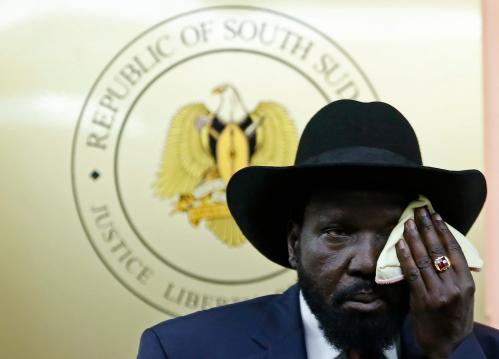

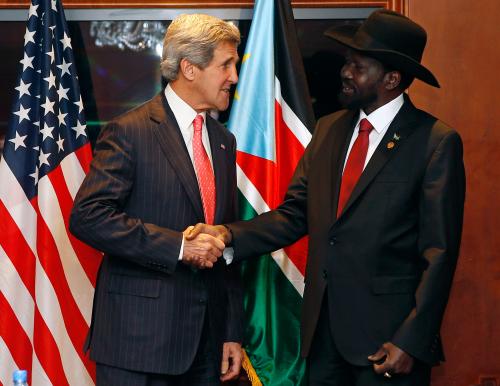
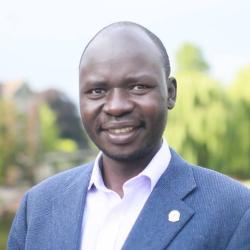
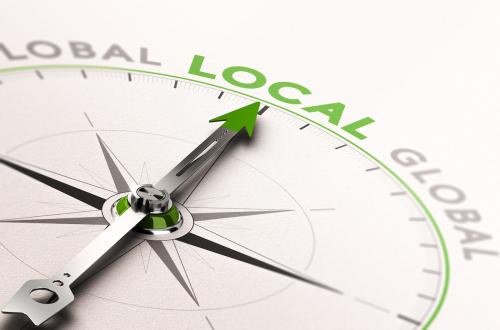
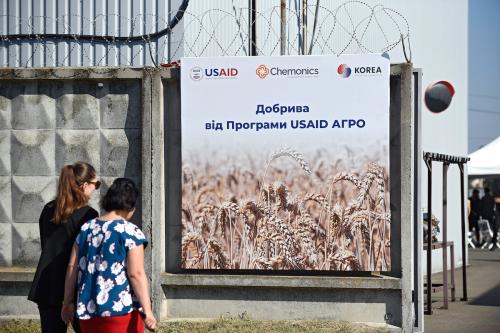
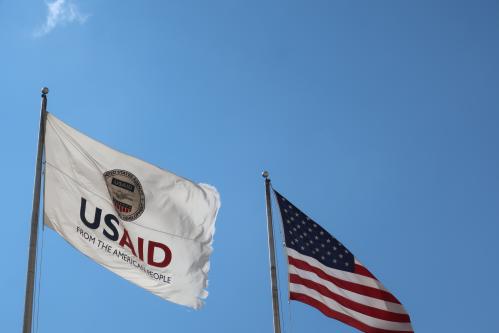
Commentary
Youth-led national dialogue the only option to avert disaster in South Sudan
October 12, 2016